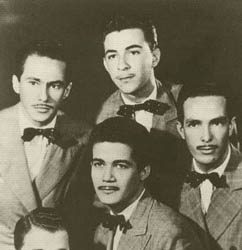 President Lula, Governor Sérgio Cabral, Mayor Eduardo Paes and Carlos Nuzman, the president of the Brazilian Olympic Committee, have accomplished something historical: They united the will of the Brazilian people and were victorious in bringing the 2016 Olympics to Rio de Janeiro.
President Lula, Governor Sérgio Cabral, Mayor Eduardo Paes and Carlos Nuzman, the president of the Brazilian Olympic Committee, have accomplished something historical: They united the will of the Brazilian people and were victorious in bringing the 2016 Olympics to Rio de Janeiro.
With no need of a plebiscite, they led a national pact for three successive administrations and at an anticipated initial cost of – at the minimum – 26 billion Brazilian reais (US$ 15.3 billion) in public resources. This could go up to 88 billion reais (US$ 51.7 billion) if we include private resources.
The result of this joint effort will be an increase in national self-esteem, as well as urban benefits for our Cidade Maravilhosa.
What are uncertain, however, are the results that the Olympics will have in consolidating our country as a nation attuned to the demands of the 21st century: a society with equal opportunity, ecologically sustainable development, and an economy producing goods and services of great scientific and technological content.
The Brazilian people, who made the pact to host the Olympics, have the opportunity to make a pact to bring about a change of course in our developmental model.
The key to this course change is a quality education available for each Brazilian child, independent of the city where that child lives and the income of his or her family.
This equal education will lead to equal opportunities, create an ecological conscience and serve as the foundation for the knowledge-based economy.
Besides the just commemorations, we must take advantage of this opportune moment to exceed that which the Olympics offer. We must make a pact that goes beyond hosting the Games.
The people, who, under the leadership of the four men cited at the beginning of this article, were capable of making the pact to host the games, can make an Olympic Pact to transform the country.
In the first place, there must be a pact within the Olympics themselves so that their expenses will be met with the maximum transparency, without corruption of any kind. Their costs must not involve reductions in the expenditures on education, healthcare, security, the income-transfer programs and the growth-acceleration program. In addition, they should not cause a fiscal deficit leading to the risk of inflation after the Games.
At the same time, the victory must not be limited to the Opening Ceremony. As a souvenir of the Games, the Brazilian athletes should receive medals in numbers commensurate with the size of our country.
This calls for channeling resources, starting now, to construct sports fields at Brazilian schools with a program for the discovery and development of athletic talents.
In the second place, an Olympic Pact is necessary to bring about the revolution that Brazil needs to confront the challenges of the future. The road for this is the educational revolution.
Brazil has the resources and an implicit, although tenuous, desire for this. What is lacking is the Pact that will transform this tenuous desire into a national will, committing the present administration and future ones to channeling the necessary resources.
The eradication of illiteracy by 2016 must be an immediate pact. Without this, the 14 million illiterate Brazilians will not recognize the flag that will wave at the Olympic Opening Ceremony because they will not know how to read the words “Ordem e Progesso” (Order and Progress) written on it.
This pact will have a much longer period of execution than the seven years necessary to build the 2016 Olympics infrastructure. It will demand up to 20 or 30 years but will have transformative, permanent results for the entire future of the nation.
We will be left with not only the pride of the festivities and some urban impact upon one city, but also with the Brazil of which we dream, the Brazil we owe to future generations.
Nuzman, Paes, Cabral and Lula succeeded in embodying a national will and in convincing the world that Brazil should be the site of the 2016 Olympics. Together we are capable of discovering the need and of creating the conditions for a pact that is greater than that for the Olympics, a pact for quality education, equal for all.
We must make more than a pact to host the athletic Olympics; we must make an Olympic Pact to bring about the revolution that Brazil needs: a sweet revolution for education.
Cristovam Buarque is a professor at the University of Brasília and a PDT senator for the Federal District. You can visit his website – www.cristovam.org.br – and write to him at cristovam@senado.gov.br.
Translated from the Portuguese by Linda Jerome LinJerome@cs.com.




